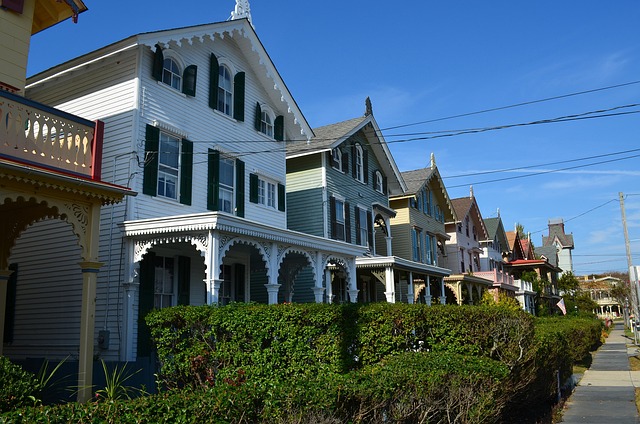Survivors of clerical assault in New Jersey can find justice and healing through specialized clergy abuse law firm expertise. These firms guide victims through complex laws, offering civil lawsuits, criminal charges advice, counseling, and support for emotional well-being. They ensure rights are protected during pretrial hearings, court appearances, and potential jury trials. New Jersey's support network includes confidential services, legal aid, advocacy, and peer connections for survivor empowerment.
Legal Support for Survivors of Clergy Assault in New Jersey
In New Jersey, the issue of clergy assault and abuse has gained significant attention, sparking a need for clarity and support. This article aims to guide survivors through the legal landscape, offering insights into their rights and options. We explore New Jersey’s clergy abuse laws, the process of filing a case, and available support services. Understanding your rights is essential, especially when considering a suit against a clergyman. Our focus is on empowering survivors with knowledge, encouraging them to take action with the help of a specialized clergy abuse law firm in New Jersey.
Understanding Clergy Abuse Laws in New Jersey

In New Jersey, clergy abuse laws are designed to protect individuals who have experienced sexual or physical harassment by members of the clergy. If you’re a survivor of such an assault, understanding your legal rights under these laws is crucial. A specialized clergy abuse law firm in New Jersey can provide essential guidance on how to navigate this complex process.
These laws establish clear guidelines for how such incidents should be handled, including reporting requirements and potential remedies for victims. The state’s legal system recognizes the unique challenges faced by survivors of clergy abuse and has put measures in place to ensure they receive justice and support. By reaching out to a reputable clergy abuse law firm in New Jersey, survivors can gain access to knowledgeable attorneys who specialize in this area, helping them every step of the way to seek the resolution they deserve.
Survivors' Rights and Legal Options Explored

For survivors of clerical assault in New Jersey, understanding one’s rights and legal options is a crucial step toward healing and justice. If you’ve been victimized by a member of the clergy, it’s important to know that there are dedicated legal professionals specializing in clergy abuse law firm New Jersey who can provide tailored guidance and support. They can help navigate complex laws and procedures, ensuring survivors receive fair treatment and compensation for their suffering.
These experts can explain various legal avenues available, including civil lawsuits against the perpetrator and/or the institution responsible for the assault. Survivors may also be entitled to criminal charges, seeking justice through the legal system. Through a clergy abuse law firm New Jersey, individuals can gain access to resources, counseling, and advocacy specifically designed to help them rebuild their lives after such traumatic experiences.
Choosing the Right Clergy Abuse Law Firm NJ

When seeking justice and healing after experiencing clerical assault in New Jersey, choosing the right clergy abuse law firm is a crucial step. It’s essential to find a team with deep understanding of both the legal system and the unique dynamics of religious institutions. Look for attorneys who have experience handling these sensitive cases and specialize in helping survivors navigate complex legal issues while prioritizing their emotional well-being.
Consider firms that offer a supportive environment, maintain confidentiality, and provide clear communication throughout the process. A reputable clergy abuse law firm in New Jersey will guide you through available options, whether pursuing civil litigation or reporting the abuse to the appropriate authorities. They’ll advocate for your rights while ensuring your experience is as comfortable and empowering as possible.
The Process of Filing a Case Against a Clergy Member

When considering whether to file a case against a clergy member for assault or abuse, survivors in New Jersey should understand the process involves several key steps. The first is to consult with an experienced clergy abuse law firm that specializes in such cases. These attorneys can provide much-needed legal guidance, ensuring your rights are protected throughout the process. They will help you navigate the complex legal landscape and explain the options available under New Jersey’s clergy abuse laws.
Next, you’ll need to gather evidence relevant to the assault or abuse. This may include documents, photographs, or testimonies from others who witnessed or knew about the incidents. Once you have this in hand, your attorney will file a formal complaint with the appropriate authorities, usually with the help of a law enforcement agency. From there, the case progresses through the legal system, including pretrial hearings, court appearances, and potentially a trial by jury if the defendant does not settle out of court.
Support Services for Assault Survivors in NJ

In New Jersey, survivors of clergy assault have access to a range of support services designed to help them heal and rebuild their lives. Many organizations offer confidential counseling, legal aid, and advocacy specifically tailored for victims of sexual abuse within religious institutions. These services are crucial in guiding survivors through complex legal processes, providing emotional support, and offering resources for financial assistance and housing stabilization.
A reputable clergy abuse law firm in New Jersey can connect survivors with specialized attorneys who understand the unique challenges they face. These lawyers can help navigate the legal system, file civil lawsuits for compensation, and ensure that survivors’ rights are protected. Additionally, there are hotlines and support groups where individuals can share experiences, find comfort, and gain valuable insights from others who have faced similar traumas. Such initiatives foster a sense of community and empowerment among survivors, enabling them to take control of their recovery journey.




